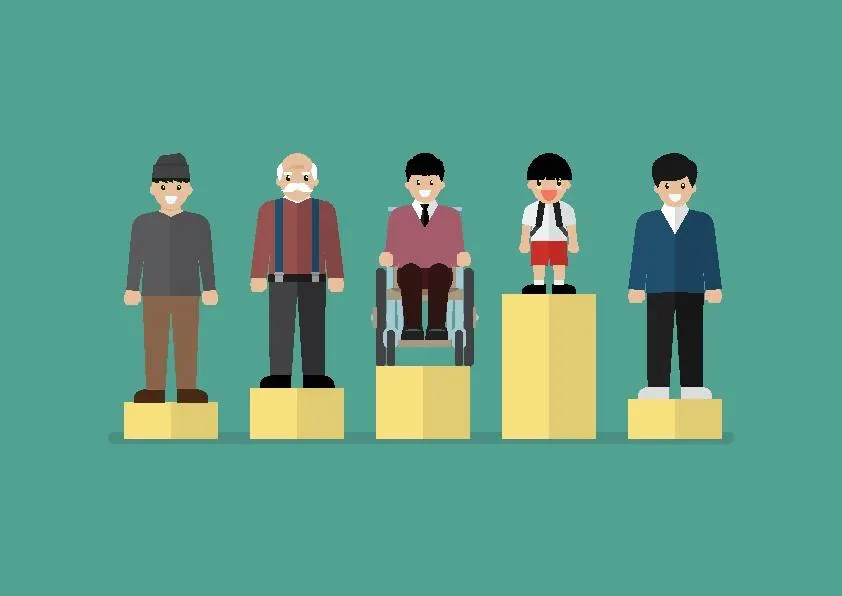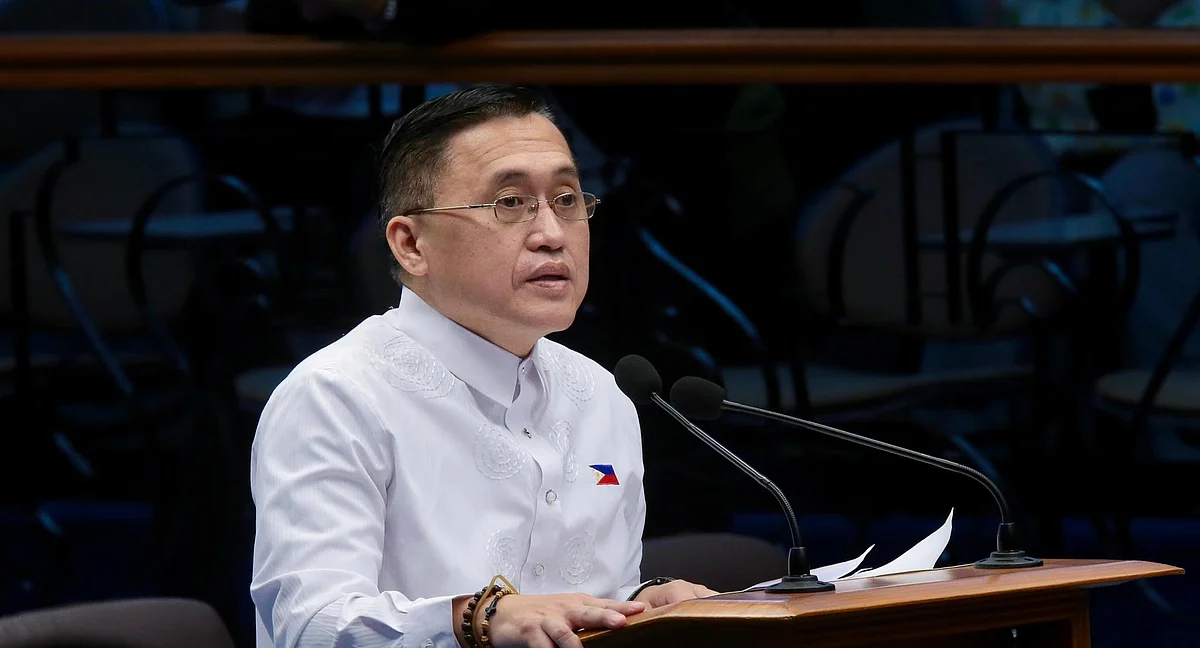By Contributor,Cornelia C. Walther
Copyright forbes

Social issue equality concept. vector illustration
Maria’s loan application was rejected in thirty-seven seconds. No human reviewed her income, her spotless payment history, or the small business she’d built from scratch. An algorithm scanned her zip code, calculated her risk score, and delivered its verdict faster than she could finish her coffee. Meanwhile, across the Atlantic in rural Ghana, twelve-year-old Kwame walks three miles to a school where outdated textbooks gather dust while AI tutors revolutionize education for children whose parents can afford smartphones and data plans.
This is not a tale of two cities; it’s the story of our fractured digital world, where artificial intelligence has quietly become the arbiter of opportunity, the guardian of access, and increasingly, the definer of human worth. What began as a technological marvel has evolved into something far more consequential: a human rights issue that demands our immediate attention.
When Too Much Meets Too Little
Picture humanity standing at a vast digital buffet. At one end, people gorge themselves on algorithmic recommendations, their choices pre-digested by machines that know their preferences better than they do. At the other end, billions stand outside, noses pressed against the glass, watching opportunities pass them by. One in three Americans lacks internet speeds sufficient for modern AI applications, while three in five people in African countries have no internet access at all.
This creates a rights paradox; the same technology that liberates some enslaves others. Those locked out of AI’s kingdom face algorithmic apartheid, cut off from jobs that require digital literacy, educational platforms that adapt to learning styles, and financial services that could lift them from poverty. But those granted entry often discover they’ve traded their autonomy for convenience, their privacy for personalization, their agency for algorithmic assistance.
Consider the modern job seeker. If you can’t access AI-powered resume optimization tools, career coaching chatbots, or interview preparation platforms, you’re essentially showing up to a gunfight with a slingshot. Yet if you can access these tools, your every click, keystroke, and pause gets harvested, analyzed, and fed into systems that may exclude candidates who don’t fit algorithmic definitions of “ideal.”
MORE FOR YOU
The ABCD Of Our Digital Dilemma
To understand how deeply AI affects human dignity, we need to examine four interconnected crises reshaping society. Think of them as the ABCD of our algorithmic age.
Agency decay is perhaps the most insidious threat to human rights. We’re witnessing the slow-motion outsourcing of human judgment to machines. GPS has made us navigationally helpless. Recommendation engines curate our culture. Predictive text shapes our thoughts. Each surrender feels minor; who hasn’t let autocorrect “fix” a perfectly good sentence?; but collectively they represent something more troubling: the gradual erosion of what makes us distinctly human.
Watch a teenager struggle to navigate without Google Maps, and you’re seeing agency decay in real time. The brain’s spatial reasoning centers, honed over millennia of human evolution, atrophy from disuse. Now multiply this across every domain of human experience. We’re creating a species increasingly dependent on digital crutches, unable to walk the cognitive distances our ancestors covered with ease.
Bond erosion strikes at the heart of human connection. AI doesn’t just mediate our relationships; it’s beginning to replace them. Chatbots counsel the lonely. AI companions provide unconditional love programmed to never disappoint. Elderly residents in care homes form attachments to robotic pets that purr on schedule but never truly reciprocate affection.
The cruelest irony? These artificial bonds often feel safer than real ones. They don’t judge, don’t leave, don’t have bad days. But they also don’t challenge us, surprise us, or help us grow in the messy, magnificent way that genuine human connection does. We risk creating a world where authentic relationships become an endangered species.
The climate conundrum adds an environmental justice dimension that most AI discussions conveniently ignore. Training a single large language model consumes as much electricity as hundreds of American homes use in a year. The cloud infrastructure powering AI runs on massive data centers that gulp energy and water like digital dinosaurs. Meanwhile, the cobalt for AI chips comes from Congo’s mines, where children dig through rubble for the raw materials of our algorithmic future.
Climate change hits the poorest hardest; the very people already excluded from AI’s benefits. So we’re asking those who gain nothing from AI to shoulder its environmental costs. It’s a form of intergenerational and international theft dressed up as innovation.
Finally, an ever more divided society emerges as AI amplifies every existing fault line. The most marginalized communities; women, people of color, disabled individuals, and LGBTQ+ persons; bear the brunt of AI’s discriminatory impacts, while gaining the least from its promises. Facial recognition systems struggle to identify dark skin. Voice assistants misunderstand accented English. Hiring algorithms favor names that sound traditionally white and male.
This isn’t accidental bias; it’s structural oppression wearing a digital mask. AI is characterized by a WEIRD (white, educated, industrial, rich, developed) demographic. But when the people building AI systems come overwhelmingly from privileged backgrounds, the systems inevitably reflect their blind spots and biases. The result is algorithmic redlining that makes historical discrimination look quaint by comparison.
Human Rights In The Age Of Algorithms
Traditional human rights frameworks crumble when confronted with AI’s shape-shifting nature. How do you claim a right to privacy when AI can infer your sexual orientation from your shopping habits, your mental health from your typing patterns, your political beliefs from the time you spend reading different articles?
The right to non-discrimination becomes meaningless when algorithms can achieve the same discriminatory outcomes through proxy variables and statistical correlations. An AI system might never explicitly consider race, but it can achieve the same biased results by weighing zip codes, schools attended, or even language patterns that correlate with racial identity.
Most troubling is the assault on human agency itself. AI systems can undermine human capabilities and reinforce inequalities through biased algorithms and unfair systems. When algorithms know us better than we know ourselves; predicting our behavior with uncanny accuracy; do we still have free will (presuming that it existed in the first place), or just the illusion of choice?
Fighting Back: Activation And Mitigation
Confronting AI as a human rights crisis requires a two-pronged strategy. Activation means ensuring everyone can access AI’s benefits. Mitigation means protecting everyone from its harms.
Activation isn’t just about building more cell towers or handing out laptops. It requires reimagining how we structure society around digital inclusion. Finland treats internet access as a fundamental right. The UN has proposed establishing shared global facilities to give all countries equitable access to computing power and AI tools. These moves illustrate a pragmatic recognition that AI access is becoming as essential as clean water or basic healthcare. More is needed, quickly to close the widening gap between connected and out of sync.
Access without understanding is just another form of exploitation. We need AI literacy campaigns as comprehensive as public health education. People must understand not just how to use AI tools, but how those tools use them in return. That requires double literacy, combining human literacy – a holistic understanding of self and society, and algorithmic literacy – the what, why and how of AI.
Mitigation requires a sort of algorithmic constitutionalism; binding principles that constrain AI power just as constitutional rights constrain government power. This means mandatory audits of high-stakes AI systems, radical transparency requirements and meaningful consent mechanisms that give people real control over their digital lives. Still, similar to the right of voting – participation is only meaningful if it is grounded in information and agency to choose.
Thinking In Systems, Acting As Citizens
The challenge of AI rights is political, and AI’s impact on human rights is inherently global, transcending borders as easily as data packets. When training algorithms in Silicon Valley affects job prospects in Kuala Lumpur, or when facial recognition systems developed in one country get deployed worldwide, traditional governance structures prove inadequate.
This demands new forms of international cooperation. It is time to envision a Global Bill of Rights for the algorithmic age; standards that apply whether you’re dealing with American tech giants, Chinese surveillance systems, or European regulatory frameworks.
Our Moves In The Great Hybrid Game
The future of AI rights won’t be decided in corporate boardrooms or government committees alone. Yet ultimately it will be shaped by millions of individual choices compounding over time. Here’s how you can join the resistance:
Awareness – Become a digital detective. Start noticing AI’s fingerprints on your daily life. When your social media feed feels oddly uniform, when your search results seem too convenient, when you find yourself agreeing with content that confirms all your existing beliefs; that’s AI at work. Demand transparency. Most companies are legally required to disclose algorithmic decision-making if you ask.
Appreciation – Practice cognitive rebellion. Fight back against agency decay by consciously making choices that algorithms wouldn’t predict. Enjoy your power to choose freely. Take routes your GPS doesn’t recommend. Read books outside your usual genres. Engage with ideas that challenge your worldview. Think of it as mental cross-training to keep your cognitive muscles strong.
Acceptance – Vote with your data. Acknowledge that your choices have consequences and support companies that prioritize human rights over profit margins. Use search engines that don’t track you. Choose messaging apps that can’t read your conversations. Pay for services instead of trading your privacy for “free” products.
Accountability – Get politically active. Contact representatives about AI regulation. Vote for leaders who understand that technology isn’t neutral. Participate in public consultations about AI policies. The algorithms governing your life are ultimately governed by the politicians you elect.
The story of AI and human rights is still being written. Whether it becomes a tale of liberation or oppression depends on choices we make today. The algorithms are watching, learning, adapting. The question is: are we?
Editorial StandardsReprints & Permissions



